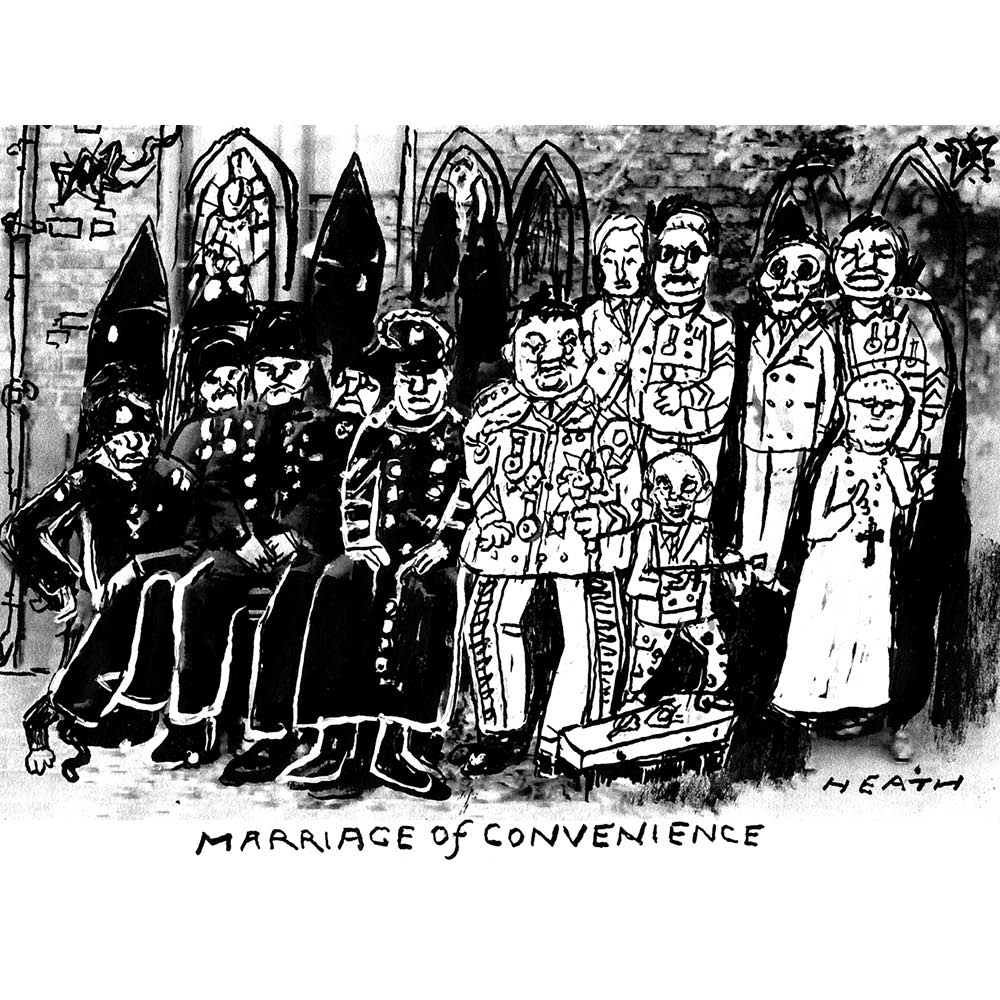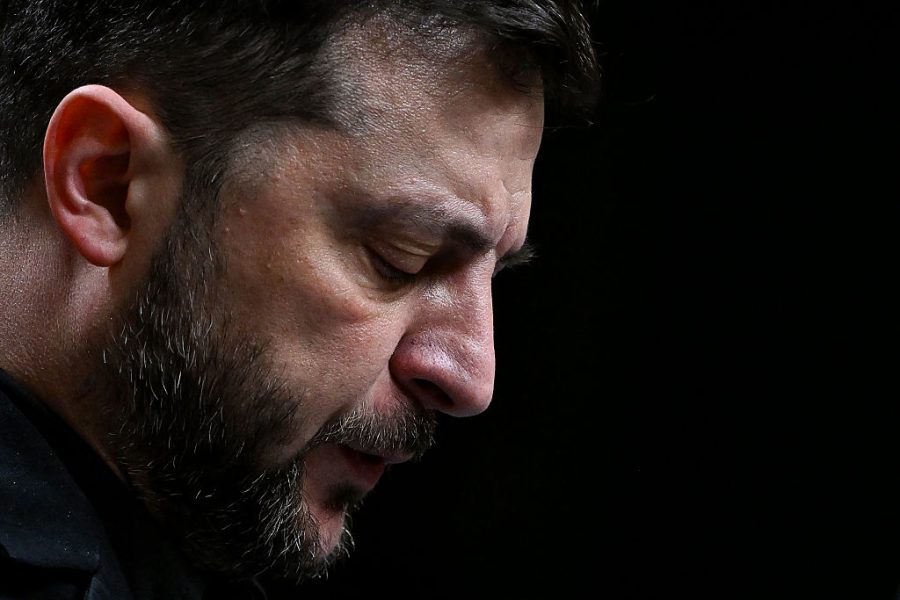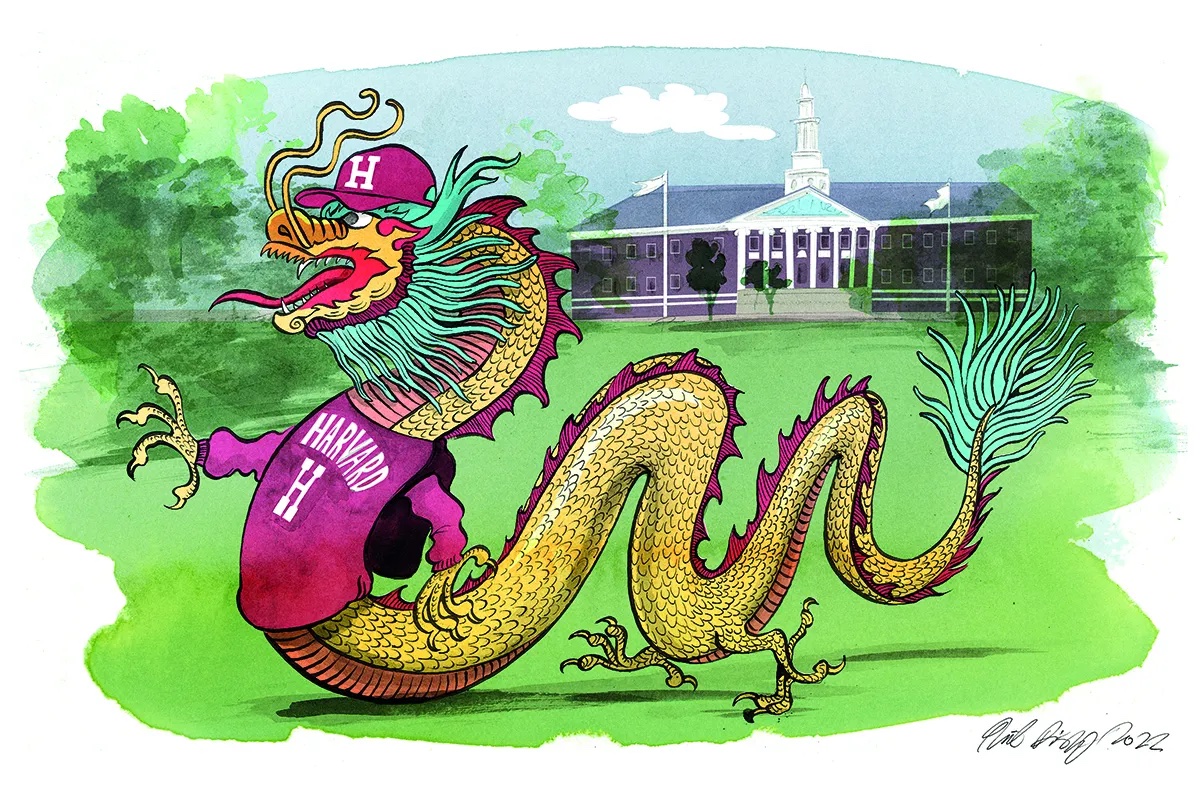On the face of it, the “no limits” partnership between Russia and China declared weeks before Vladimir Putin invaded Ukraine in February 2022 appears to be going from strength to strength. In August, Chinese premier Li Qiang spent four days in Moscow and signed off on what Putin described as “large-scale joint plans and projects” that would “continue for many years.” Russia’s trade with China has more than doubled to $240 billion since the invasion, buoying the Kremlin’s coffers with oil money and substituting goods sanctioned by the West. Moscow and Beijing have also stepped up joint military exercises. Last month, Chinese and Russian long-range bombers were spotted patrolling together near Alaska just days after joint live-fire naval drills in the South China Sea, the first such exercises since 2016.
Is China — with Russia, Iran and North Korea in tow — forging the same kind of axis that threatened world peace in the 1940s? Could Putin and Xi Jinping be “wondering if it is their historical mission to usher in a new age of what they may think of as necessary violence,” as the American historian and diplomat Philip Zelikow has recently warned? The reality of the new Sino-Russian pact may be less threatening — and more complex — than it appears.
First and foremost, Beijing’s economic ties with Russia remain small beer compared with the $1.5 trillion of annual trade China does with the US and Europe. China may be Russia’s largest economic partner, but Russia is only China’s thirteenth. Beijing has also been careful to avoid becoming entangled in western economic sanctions on Moscow, with a slew of Chinese companies quitting Russia after the invasion. Among them was Sinopec, one of the biggest investors in the Russian energy sector, which froze negotiations on a planned $500 million investment in a petrochemical factory in Russia. Two leading Chinese banks — ICBC and Bank of China — pulled out, along with UnionPay, a Chinese payment system that was considered a lifeline for many Russians following the exit of Visa and Mastercard in March 2022.
Crucially, the Chinese government has also suspended plans for Power of Siberia 2, or POS-2, a 1,700-mile-long natural gas pipeline that was to link gas fields in western Siberia to northern China. That mega project could have made up for the catastrophic loss of European gas markets in the wake of the September 2022 destruction of the €20 billion Nord Stream 1 and 2 pipelines — yet there is no mention of POS-2 in China’s long-term economic plans for the rest of the decade. Even when the project was first mooted a decade ago, the Chinese refused to fund POS-2. Neither did they contribute a penny to the smaller and partially completed Power of Siberia 1, which links gas wells in eastern Siberia to the Chinese grid, and was financed entirely by Russia’s Gazprom. Perhaps taking a lesson from the Kremlin’s use of gas cut-offs as a political tool against Europe in 2014 and again in 2022, Beijing prefers instead to rely on domestic supplies of coal for 56 percent of its energy.
China has also green-lit the construction of twenty-one new nuclear power plants over the past two years alone, and has added more renewable capacity than the rest of the world combined. China, just like India and Turkey, is happy to import Russian oil — which currently trades at a discount thanks to a price cap of $60 a barrel imposed by the European Union and US. But when it comes to committing itself to relying on Russian gas supplied through fixed pipelines, Beijing’s answer has been a strong no.
Since the start of the war, an avalanche of Chinese goods has taken over Russian markets abandoned by western retailers, accounting for 70 percent of smartphones and 49 percent of new cars sold last year. But alongside consumer durables are many hi-tech components that Russia needs to keep its war effort going, NATO has alleged. In a stinging statement at the alliance’s seventy-fifth anniversary meeting in Washington last month, the bloc’s leaders accused China of being a “decisive enabler” of Russia’s war against Ukraine and said its “large-scale support for Russia’s defense industrial base” are “enabling Moscow to wage its war.” NATO secretary-general Jens Stoltenberg urged Beijing to “cease all material and political support to Russia’s war effort.”
That accusation drew a sharp rebuke from the Chinese, who blasted the NATO statement as “filled with Cold War mentality and belligerent rhetoric,” and denounced it as “provocative with obvious lies and smears.” Beijing insists that it’s neutral in the Ukraine conflict and wishes only to “promote peace talks and seek political settlement” on the basis of the United Nations Charter. Just weeks before a “peace summit” organized by Ukraine and its western allies in Switzerland in June, China published its own six-point peace plan jointly with Brazil.
On the face of it, that kind of talk appears to support Kyiv’s position much more than Putin’s. But at the same time, the Beijing peace plan also condemned “expanding military blocs” — a clear dig at NATO’s expansion and involvement in the war. China — which stayed away from Volodymyr Zelensky’s summit in June — instead suggested a separate international peace conference that would have representation from both Kyiv and Moscow. The Ukrainian foreign minister Dmytro Kuleba discussed the idea with China’s top diplomat Wang Yi during a three-day visit to Beijing last month. Xi had previously spoken at length by phone to Ukraine’s president, talks which Zelensky described as “long and meaningful.” Zelensky has now backed, in principle, some kind of talks with Russia in November — an example of China’s potential as a middleman in the endgame of the war.
Clearly, China’s “no limits” partnership with Russia does, in fact, have very distinct limits — and is being conducted very firmly on Beijing’s terms. President Xi “does not want to be seen to be abandoning Putin and does not want him to fail,” argues Sir Lawrence Freedman of King’s College London. “But it is a choice. He is not under any obligation. While he may give Putin considerable latitude, there are limits on the partnership, for example when it comes to threats to use nuclear weapons, and he has made it clear that Russia is not an ally. Most importantly, he never pretends that this is a coming together of equals. China is by far the senior partner.”
China has refused to provide Moscow with military assistance (at least publicly), forcing Putin’s military to scour the world buying up old Soviet-model shells and artillery from as far afield as North Korea and Syria. It has also refused officially to recognize Crimea as Russian territory and has abstained from, rather than voted against, UN resolutions condemning Putin’s invasion.
So what does China really want from its relationship with Russia? First and foremost, Beijing wishes to prevent the normalization of the use of tactical nuclear weapons on the battlefield — a development which would radically change the military calculus of a possible Chinese annexation of Taiwan.
Second, Beijing wishes to stop NATO’s strategic turn to focus on the Asia-Pacific region — a recalibration led by Washington and backed by both Republicans and Democrats. In her acceptance speech at the Democratic National Convention, Vice President Kamala Harris vowed that America — not China — “wins the competition for the twenty-first century,” and that “we strengthen, not abdicate, our global leadership.” She also spoke of an “enduring struggle between democracy and tyranny.” At the same time, former president Donald Trump has often spoken of Europe’s need to look after its own security and for the US to focus on China.
Beijing’s fundamental national interest is to keep the US — and NATO — out of Asia, and to avoid a hot conflict with Washington. Ultimately, the chief value of Russia — as well as China’s other rogue associates, such as Iran and North Korea — is as bit-part actors in that vitally important strategic game. “Fundamentally [Beijing] has no interest whatsoever in the outcome of the Ukraine conflict, beyond preventing nuclear use and avoiding the collapse of the [Putin] regime,” says one senior western official who has been in close contact with Chinese leaders during the war.
One optimistic scenario is that Beijing could help Europe solve its Russia problem by brokering a peace settlement in Ukraine and reining in Putin, while Europe could in turn help Beijing by restraining American bellicosity toward China. At the other end of the spectrum, it’s not beyond the realm of possibility that a post-Putin Russia could one day find itself having more in common with Europe than with its great Eurasian rival.
Historically, Russia and China have been natural enemies rather than allies. Putin launched his war on Ukraine on the basis of a historic narrative of imperial conquest and ancient rights. But by that same logic, China has an excellent case for reclaiming swaths of Manchuria sliced off by Russia during the Qing dynasty. Indeed, though Ukraine’s incursion into Russia’s Kursk region is commonly described as the first foreign invasion since 1941, it’s actually the Chinese who last took a chunk of territory from Moscow, when they occupied Zhenbao (or Damansky) Island on the Ussuri river in March 1969. A Soviet T-62 tank that was captured during that 1969 border war is now on display at the Military Museum of the Chinese People’s Revolution — a place of pilgrimage for every senior Chinese officer and a reminder that just a generation ago Moscow and Beijing were at war.
China’s friendship with the Kremlin is purely pragmatic, limited and highly transactional. Putin’s war has, for the first time in centuries, effectively cut off the western-facing head of the Russian double-headed eagle, forcing it to look exclusively eastward for economic and diplomatic succor. That weakness suits Beijing well, providing not just cheap energy but also the pick of Russian technology and human resources (Huawei, for instance, has reportedly recruited hundreds of top Russian engineers since the start of the war). A weaker Russia means a stronger China — which, for the moment, suits Xi’s ambitions to challenge America for global supremacy just fine.
This article was originally published in The Spectator’s October 2024 World edition.























Leave a Reply